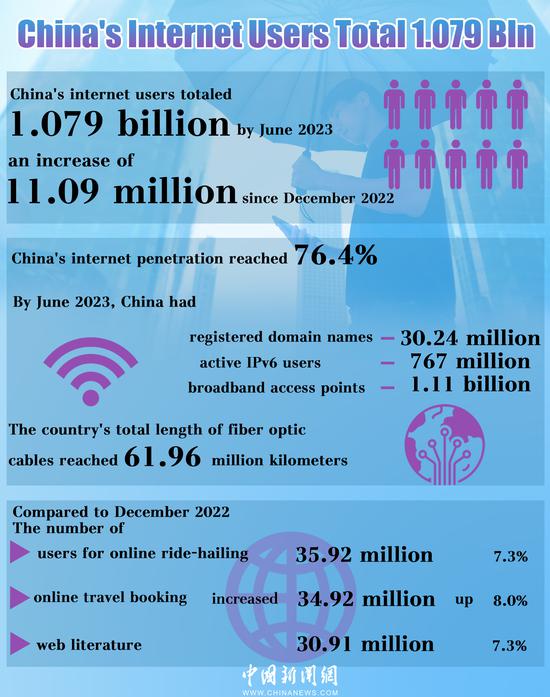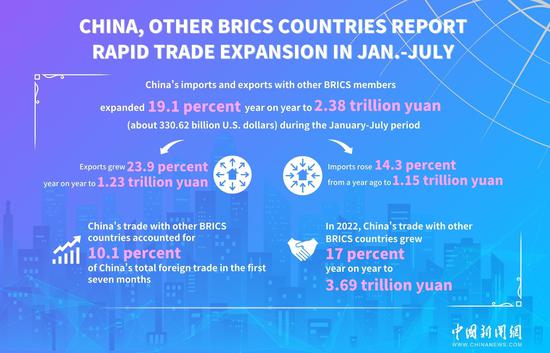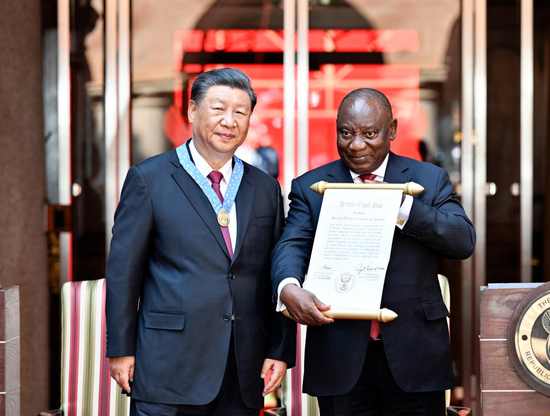
A visitor looks at an artificial intelligence-powered large language model during an expo in Shanghai. (Photo/China Daily)
In July, US tech company Meta rolled out a similar open-source model, the Llama 2, for commercial use.
Zhou Jingren, chief technology officer at Alibaba Cloud Intelligence, said, "By open-sourcing our proprietary large language models, we aim to promote inclusive technologies and enable more developers and small and medium-sized enterprises (or SMEs) to reap the benefits of generative AI."
In April, Alibaba unveiled its Tongyi Qianwen LLM, joining the race to offer a potential rival to ChatGPT. Experts said the launch of two small-sized versions of Tongyi Qianwen will lower the threshold for the use of LLMs, and allow SMEs and developers to start using AI more quickly.
The two models will be free for use by companies with less than 100 million active monthly users. Companies with more than this number of users can request a license from Alibaba Cloud, the company said.
Lu Yanxia, research director at market consultancy IDC China, said the introduction of open-source AI models will make AI services accessible to more enterprises, help them build customized industry-specific LLMs, and boost technological advances and the commercial application of LLMs.
More Chinese tech companies will likely launch open-source models in the coming months, Lu said, adding that LLMs have triggered a new AI wave and brought fresh business opportunities for domestic AI servers, cloud computing and chip companies.
"The LLMs will speed up integration with a wide range of industries and application scenarios, which necessitates a higher demand for data and knowledge in professional fields, and for talent that can fine-tune specialized models based on diverse industrial demands," Lu said.


















































 京公网安备 11010202009201号
京公网安备 11010202009201号